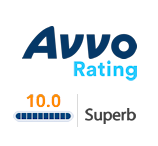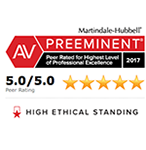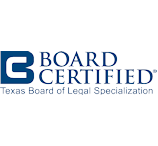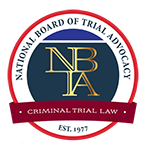J. MICHAEL PRICE II AWARDS AND ACCOLADES

Featured in D magazine for Best Lawyers in Dallas (2021)
D Magazine is proud to annually honor exceptional lawyers in our May issue. The attorneys on our Best Lawyers list are peer-nominated on the basis that they offer unparalleled counsel in one of 40 categories. These are members of the legal community representing the people and institutions of Dallas with mastery and drive.
To compile our list of the best lawyers, we ask lawyers with a valid Texas Bar number to nominate two lawyers outside their firm and one within their firm across all voting categories, keeping the following question in mind: “Which local lawyers, of those whose work you have witnessed firsthand, would you rank among the current best? Answers may include co-counsel, lawyers you have observed in court, and opposing counsel.” After the votes are tallied, a panel of eminent lawyers will meet with our editors to evaluate the Best Lawyers 2020 list. Self-nominations will not count. The panel’s anonymity is assured to allow the lawyers to speak freely about issues regarding their peers that would be known only to the legal community.
Read More

AVVO Rating
Avvo rates and profiles every attorney, so that people can choose the right attorney. Lawyer profiles contain helpful information including a lawyer’s experience, areas of practice, disciplinary history, and ratings from clients. Profile data comes from many sources, including state courts and bar associations, lawyer websites, and information provided by lawyers. Information meets guidance in the Avvo Rating—our effort to evaluate a lawyer’s background using a mathematical model that considers the information we know about a lawyer. This information is shown in the lawyer’s profile, including a lawyer’s years in practice, disciplinary history, professional achievements, and industry recognition—all factors that, in our opinion, are relevant to assessing a lawyer’s qualifications.

Texas Super Lawyer, 2005-2021
Named in Texas Super Lawyers®, a Thomson Reuters service, from 2005-2019, as published in Texas Monthly Magazine.
How Super Lawyers Are Selected, from Texas Super Lawyers:
The General Survey In February of this year, we mailed more than 65,000 ballots to attorneys across Texas. We asked attorneys to vote for the best lawyers they have personally observed in action – whether as opposing counsel, as co-counsel, from first-person observation in the courtroom, etc. Our intent was to discourage lawyers from voting for others based purely on reputation.
Each ballot had the name of the addressee-attorney on it. Only ballots properly verified by that attorney (with signature and attorney registration number filled in) were counted.
We received more than 65,000 nominating votes. Each lawyer was given a score based on the number of votes he or she received and where these votes came from. Votes received from lawyers in other firms were awarded significantly more points than votes received from lawyers in the same firm.
The Screening Process Lawyers who received only same-firm votes were eliminated from the list of candidates. In other words, in order to be considered for inclusion, a lawyer had to have received votes from lawyers outside his or her firm or organization.
We also kept track of who voted for whom. We did this to watch for what we call “back-scratch voting;” that is, two lawyers voting for each other. If we noticed a disproportionate number of back-scratch votes, we eliminated that lawyer from our list of candidates.
Our staff also conducted research on each nominee (whose vote total exceeded a particular threshold level) to ensure that the lawyer is properly licensed, is in good standing with the Bar, and has no history of disciplinary actions that would warrant his or her removal from the list.
The Blue Ribbon Panel Review The lawyers who remained on the list were then divided according to their areas of practice. A blue ribbon panel consisting of the top vote-getters from our general survey was assembled for each area of practice. We also asked managing partners of law firms to nominate members of their firms to serve on the panel. Those who met a minimum point threshold were also added to the panel. These panels reviewed the list of nominees in their areas of practice. The blue ribbon review process yielded a positive or negative point total for each nominee. This point total was then added to the lawyers’ scores.
The Final Selection Process We ranked lawyers according to their final scores. We cut off the list so that no more than 5 percent of the total Texas Bar would be included.
You can see all Texas Super Lawyers listed in three ways: alphabetically by last name, sorted by geographic location, or by up to five areas of practice per lawyer.
Mike Price is proud to announce that he has been selected to the 2022 Texas Super Lawyers list.

A-V Rated, Martindale-Hubble
Mike has earned the prestigious top rating of “A-V Rated” by Martindale Hubble.
Martindale-Hubble Ratings Info:
Ratings reflect the confidential opinions of bar members and the judiciary, and attest to the individual lawyer’s legal ability and adherence to professional standards of ethics. Exclusive to the Martindale-Hubbell Law Directory, ratings are accepted as exceptionally valuable benchmarks by members of the legal community, and testify to the unique and respected position the Law Directory occupies in the legal profession. They are intended for the use of lawyers and law firms in the practice of their profession.
Martindale-Hubbell solicits confidential opinions from members of the Bar, including those who have ratings and those who do not. In addition, members of the Judiciary are queried. Opinions are solicited via written questionnaires and by Martindale-Hubbell representatives who conduct interviews.
Ratings fall into two categories: Legal Ability and General-Ethical Standards. Unless a rating is established in both categories, no rating is published.
The Legal Ability Ratings (C, B, A) take into consideration the standard of ability for the area where the lawyer practices, the attorney’s expertise, nature of practice and qualifications relevant to the profession. Where a lawyer’s practice is limited or specialized, rating opinions are made on the basis of performance in those specific fields of law.
The General-Ethical Standards Rating (V) covers adherence to professional standards of conduct and ethics, reliability, diligence and other criteria relevant to the discharge of professional responsibilities.
In the United States, 43% of the active bar is rated. Omission of individual lawyer ratings should not be construed as unfavorable since Martindale-Hubbell does not undertake to develop ratings for every lawyer. In addition, certain lawyers have requested their ratings not be published. In other instances, definitive information required to establish a rating has yet to be developed.
Ratings reflect career development.
A lawyer’s Rating will generally improve over time. But Ratings can be revised downward, or even removed if a decline is noted in ability or ethical standards.
- A CV Rating is an excellent first Rating and a statement of a lawyer’s above average ability and very high ethics.
- A BV Rating is an indication of an exemplary reputation and well-established practice. A typical lawyer is in mid-career, with a significant client base and high professional standing.
- An AV Rating shows that a lawyer has reached the height of professional excellence. He or she has usually practiced law for many years, and is recognized for the highest levels of skill and integrity.
- A (T) after the AV, BV or CV Rating indicates that the rating was established in another state or province. Ratings are generally transferable within state boundaries, and can also be transferred inter-state or inter-province, with the (T) symbol, indicating the rating was established in another jurisdiction.

Board Certified in Criminal Law by the Texas Board of Legal Specialization
In 2001, Mike became Board Certified in Criminal Law by the Texas Board of Legal Specialization. While most attorneys have to practice 10, 15 or 20 years to reach the experience level necessary to achieve Board Certification, Mike met the rigorous requirements and passed the exam after being licensed for 6 years.
TEXAS BOARD OF LEGAL SPECIALIZATION
What is a Criminal Law Board Certified Attorney?
The consumer can identify a Criminal Law Board Certified attorney in one of many ways. A Criminal Law Board Certified attorney is entitled to indicate certification on business cards and letterhead by stating “Board Certified – Criminal Law – Texas Board of Legal Specialization.” The attorney may also display the Certificate of Special Competence awarded by the Texas Board of Legal Specialization, and list the certification in legal directories and telephone listings under “Attorneys – Board Certified.” Initial certification is valid for a period of five years. To remain certified, an attorney must apply for recertification every five years and meet practice, peer review and continuing legal education requirements for the specialty field. An attorney who is Board Certified by the Texas Board of Legal Specialization in Criminal Law must have experience in the preparation and trial of serious criminal matters. The attorney must also have extensive knowledge of state and federal constitutional law, evidence, procedure and penal laws involved in the trial of these matters. A relatively small percentage of all Texas lawyers are board certified in a particular area of specialization.
To become Board Certified in Criminal Law, an attorney must have:
- Been licensed to practice law for at least five years
- Devoted a required percentage of practice to criminal law for at least three years
- Handled a wide variety of criminal law matters to demonstrate experience and involvement
- Attended criminal law continuing education seminars regularly to keep legal training up to date
- Been evaluated by fellow lawyers and judges
- Passed a day-long written examination covering state & federal criminal law
The Texas Board of Legal Specialization was created by, and operates under the authority of, the Supreme Court of Texas. Its members are appointed by the President of the State Bar of Texas. The Board administers the program by which an attorney may earn a certificate of special competence in a particular field of law. The program is voluntary and is funded entirely by fees imposed on participating attorneys.
For more information please write to:
Texas Board of Legal Specialization
P.O. Box 12487
Austin, Texas 78711-2487
or call
(512) 463-1454
(800) 204-2222 ext. 1454
Fax: (512) 477-7719

Board Certified in Criminal Trial Advocacy by the National Board of Legal Specialty Certification
In 2006, Mike become one of only 5 lawyers in the Dallas area to be Board Certified in Criminal Law by both the Texas Board of Legal Certification and the National Board of Legal Specialty Certification.
About the NBLSC
NBLSC is an American Bar Association (ABA) accredited organization providing Board Certification for lawyers. Board Certification is a rigorous testing and approval process that officially recognizes the extensive education and courtroom experience of our attorneys. NBLSC provides Board Certification for Trial Lawyers & Trial Attorneys, Civil Lawyers, Criminal Lawyers, Family Lawyers and Social Security Disability Lawyers.

